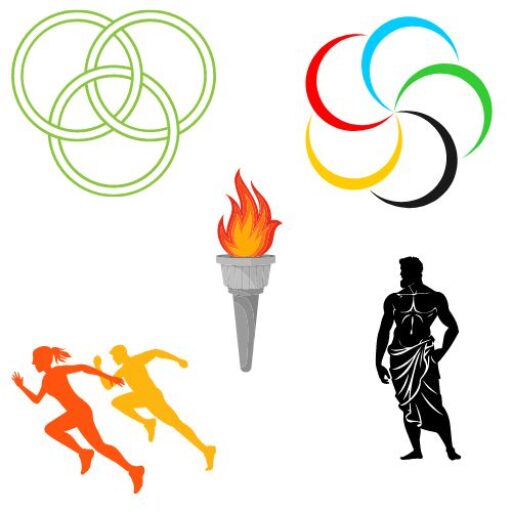Download App Here
IPL Match Predictor-2025
Live IPL Score 2025
IPL Match Update 2025
DATE-24 /03/2025
KKR Vs RCB


Kolkata Knight Riders Vs Royal Challengers Bengaluru
आईपीएल 2025 में सनराइजर्स हैदराबाद और राजस्थान रॉयल्स का मैच 23 मार्च को खेला जाएगा. यह मैच हैदराबाद के राजीव गांधी इंटरनेशनल स्टेडियम में खेला जाएगा. सनराइजर्स हैदराबाद वही टीम है जिसने पिछले सीजन 3 बार 250 रनों का आंकड़ा पार किया था और IPL 2024 का फाइनल भी खेला था. दूसरी ओर राजस्थान रॉयल्स है, जिसने प्लेऑफ तक का सफर तय किया था. यहां जानिए हैदराबाद बनाम राजस्थान मैच में पिच रिपोर्ट कैसी रह सकती है, उनका प्लेइंग XI संयोजन क्या रह सकता है और मैच में कौन विजयी रह सकता है?
राजीव गांधी अंतर्राष्ट्रीय स्टेडियम की पिच आमतौर पर बल्लेबाजी के लिए अनुकूल रहती है. यहां बड़े-बड़े स्कोर बनते रहे हैं और पिछले सीजन इसी मैदान पर SRH की टीम ने 277 रनों का स्कोर खड़ा कर डाला था. ये इस मैदान पर बना सबसे बड़ा IPL स्कोर भी है. यहां अब तक 77 आईपीएल मैच खेले गए हैं, जिनमें से 34 बार पहले बैटिंग और 43 बार चेज करने वाली टीम विजयी रही है.
SRH का स्क्वाड: ट्रेविस हेड, अभिषेक शर्मा, ईशान किशन, नितीश कुमार रेड्डी, हेनरिक क्लासेन, अभिनव मनोहर, वियान मुल्डर, पैट कमिंस, हर्षल पटेल, राहुल चाहर, मोहम्मद शमी.
RR का स्क्वाड: यशस्वी जयसवाल, वैभव सूर्यवंशी, नितीश राणा, रियान पराग (कप्तान), शिम्रोन हेटमायर, ध्रुव जुरेल, शुभम दुबे, वानिंदु हसरंगा, जोफ्रा आर्चर, महेश थीक्षाना, संदीप शर्मा
विराट कोहली ने कोलकाता के गेंदबाजों को धोया… फिल साल्ट भी चमके, आईपीएल के ओपनिंग मैच में जीती आरसीबी।
इंडियन प्रीमियर लीग (IPL) 2025 के ओपनिंग मुकाबले में रॉयल चैलेंजर्स बेंगलुरु (RCB) ने कोलकाता नाइट राइडर्स (RCB) को 7 विकेट से हरा दिया.
इंडियन प्रीमियर लीग (IPL) के 18वें सीजन का दूसरा मुकाबला आज नाइट राइडर्स (RR) और रॉयल चैलेंजर्स बेंगलुरु (RCB) के बीच खेला जाएगा। ट्रैविस हेड को कप्तान और यशस्वी जायसवाल को उप कप्तान चुन सकते हैं। विकेटकीपर विकेटकीपर के तौर पर संजू सैमसन, हेनरिक क्लासन और ईशान किशन को चुन सकते हैं।
- संजू सैमसन इस साल इंग्लैंड के खिलाफ खेले 5 टी-20 मैचों की सीरीज में 118.60 की स्ट्राइक से बल्लेबाजी की और 51 रन बनाएं। वहीं पिछले साल IPL के खेले 16 मैच मैचों में 153.47 की स्ट्राइक से 531 रन बनाएं।
- हेनरिक क्लासन पिछले महीने संपन्न SA20 के खेले 10 मैचों में 134.69 की स्ट्राइक से 198 रन बनाए हैं। जिसमें 2 अर्धशतक शामिल है। वहीं पिछले साल IPL के खेले 16 मैचों में 174.07 की स्ट्राइक से 479 रन बनाए हैं।
- ईशान किशन पिछले साल के आखिरी महीने में संपन्न सैयद मुश्ताक अली के खेले 6 मैचों में 167.70 की स्ट्राइक से 161 रन बनाए हैं। वहीं पिछले साल IPL के खेले 14 मैचों में 148.84 की स्ट्राइक से 320 रन बनाए हैं। इसमें एक अर्धशतक भी शामिल है।
RCB का स्क्वाड: विराट कोहली, रजत पाटीदार (कप्तान), यश दयाल, लियाम लिविंगस्टोन, फिल साल्ट, जितेश शर्मा, जोश हेजलवुड, रसिख डार, सुयश शर्मा, भुवनेश्वर कुमार, क्रुणाल पंड्या, स्वप्निल सिंह, टिम डेविड, रोमारियो शेफर्ड, नुवान तुषारा
KKR का स्क्वाड: रिंकू सिंह, वरुण चक्रवर्ती, सुनील नरेन, आंद्रे रसेल, हर्षित राणा, रमनदीप सिंह, वेंकटेश अय्यर, क्विंटन डी कॉक, रहमनुल्लाह गुरबाज, एनरिक नॉर्टजे, अंगकृष रघुवंशी, वैभव अरोड़ा, मयंक मारकंडे, रोवमैन पॉवेल, मनीष पांडे, स्पेंसर जॉनसन
DREAM-11

LSG Vs DC


Lucknow Super Giants Vs Delhi Capitals
नए कप्तान और नई टीम के साथ दिल्ली कैपिटल्स और लखनऊ सुपर जॉइंट्स की टीम सोमवार को जब यहां आमने-सामने होगी तो उनका लक्ष्य इंडियन प्रीमियर लीग (आईपीएल) के नए सत्र का आगाज जीत से करना होगा. यह लगातार दूसरा वर्ष होगा जबकि दिल्ली की टीम अपने दो घरेलू मैच यहां खेलेगी. अपने आईपीएल करियर में अभी तक केवल दिल्ली की टीम से खेलने वाले ऋषभ पंत इस बार लखनऊ की टीम की कमान संभाल रहे हैं जिसने उन्हें आईपीएल की नीलामी में रिकॉर्ड 27 करोड रुपए में खरीदा था. अपनी महंगी कीमत के कारण पंत का चर्चा में रहना लाजमी है लेकिन यह विकेटकीपर बल्लेबाज इन सब बातों को दरकिनार कर अच्छा प्रदर्शन करके सीमित ओवरों की राष्ट्रीय टीम में अपना स्थान पक्का करना चाहेगा. पंत चैंपियंस ट्रॉफी के लिए भारतीय टीम में शामिल थे लेकिन उन्हें एक भी मैच में खेलने का मौका नहीं मिला था.
दूसरी तरफ केएल राहुल हैं जो पिछले दो सत्र में लखनऊ की कमान संभालने के बाद इस बार एक खिलाड़ी के रूप में दिल्ली कैपिटल्स की तरफ से खेलेंगे. दिल्ली की टीम ने ऑलराउंडर अक्षर पटेल को कप्तान नियुक्त किया है लेकिन बल्लेबाजी में राहुल की भूमिका महत्वपूर्ण होगी. दिल्ली की टीम में दक्षिण अफ्रीका के अनुभवी बल्लेबाज फाफ डु प्लेसी भी हैं जो पिछले साल तक रॉयल चैलेंजर्स बेंगलुरु (आरसीबी) की कमान संभाल रहे थे. दिल्ली ने उन्हें उप कप्तान बनाया है. कागजों पर दिल्ली की टीम काफी मजबूत नजर आती है क्योंकि उसके पास विदेशी और भारतीय खिलाड़ियों का अच्छा संयोजन है. दूसरी तरफ लखनऊ के पास केवल छह विदेशी खिलाड़ी नहीं हैं.
मैच डिटेल्स, यह मुकाबला विशाखापत्तनम के डॉ वाईएस राजशेखर रेड्डी एसीए वीडीसीए क्रिकेट स्टेडियम में खेला जाएगा।
DC का स्क्वाड:अक्षर पटेल (कप्तान), केएल राहुल (विकेटकीपर), जेक फ्रेजर-मैकगर्क, करुण नायर, फाफ डु प्लेसिस, डोनोवन फरेरा, अभिषेक पोरेल (विकेटकीपर), ट्रिस्टन स्टब्स (विकेटकीपर), समीर रिजवी, आशुतोष शर्मा, दर्शन नालकंडे, विप्रज निगम, अजय मंडल, मनवंत कुमार, त्रिपुराना विजय, माधव तिवारी, मिशेल स्टार्क, टी नटराजन, मोहित शर्मा, मुकेश कुमार, दुष्मंथा चमीरा और कुलदीप यादव.
LSG ऋषभ पंत (कप्तान और विकेटकीपर), डेविड मिलर, एडेन मार्करम, आर्यन जुयाल, हिम्मत सिंह, मैथ्यू ब्रीट्ज़के, निकोलस पूरन (विकेटकीपर), मिशेल मार्श, अब्दुल समद, शाहबाज अहमद, युवराज चौधरी, राजवर्धन हंगरगेकर, अर्शिन कुलकर्णी, आयुष बडोनी, अवेश खान, आकाश दीप, एम सिद्धार्थ, दिग्वेश सिंह, आकाश सिंह, शमर जोसेफ, प्रिंस यादव, मयंक यादव, शार्दुल ठाकुर और रवि बिश्नोई.।
DREAM-11



Olympic Ground
The Olympic spirit embodies the values of excellence, friendship, and respect. For a winner, it signifies not just the triumph of reaching the pinnacle of athletic achievement, but also the journey marked by dedication, perseverance, and sportsmanship.
To win in the Olympics is to represent the culmination of years of hard work, overcoming obstacles, and unwavering commitment to a goal. It’s a testament to pushing the limits of human potential while upholding the highest standards of integrity and fair play.
Winning the Olympic gold is a celebration of personal and national pride, reflecting the relentless pursuit of excellence. It is a moment where the dreams of an individual align with the hopes of a nation, inspiring countless others to believe in their potential.
The Olympic spirit also reminds winners to embrace humility, respect their competitors, and acknowledge the collective effort that made their success possible. It’s a call to be a role model, promoting unity and friendship among diverse cultures and nations.
Ultimately, the Olympic spirit for a winner is about more than the victory itself; it’s about embodying the ideals of the Games, celebrating the shared human experience, and contributing to a legacy that inspires future generations.
how did olympic started?
The Olympic Games have a rich history that dates back to ancient Greece. The first recorded Olympic Games were held in 776 BC in Olympia, a sanctuary site for the Greek gods in the western Peloponnese region. These ancient games were part of a religious festival in honor of Zeus, the king of the Greek gods.
Key aspects of the ancient Olympics include:
- Religious Significance: The games were closely linked to religious festivals and included rituals and sacrifices to Zeus.
- Events: Initially, the only event was a footrace called the “stadion,” but over time, the games expanded to include other athletic competitions such as wrestling, boxing, chariot racing, and the pentathlon (which consisted of running, jumping, discus throw, javelin throw, and wrestling).
- Participation: The games were open to freeborn Greek men, and later, athletes from across the Greek world. Women were not allowed to compete, although they could own chariots that participated in the races.
- Frequency: The games were held every four years, a period known as an Olympiad, which became a standard unit of time in the Greek calendar.
The ancient Olympics continued for nearly 12 centuries until they were banned in 393 AD by the Roman Emperor Theodosius I, who sought to impose Christianity as the state religion and viewed the games as a pagan festival.
The modern Olympic Games were revived in the late 19th century by Pierre de Coubertin, a French educator and historian. Inspired by the ancient games, Coubertin founded the International Olympic Committee (IOC) in 1894, and the first modern Olympics were held in Athens, Greece, in 1896. The modern Olympics aimed to promote international unity and peace through sports, embracing the values of excellence, friendship, and respect.
Since then, the Olympics have grown into a global event, with both Summer and Winter Games held every four years, featuring athletes from around the world competing in a wide range of sports.

